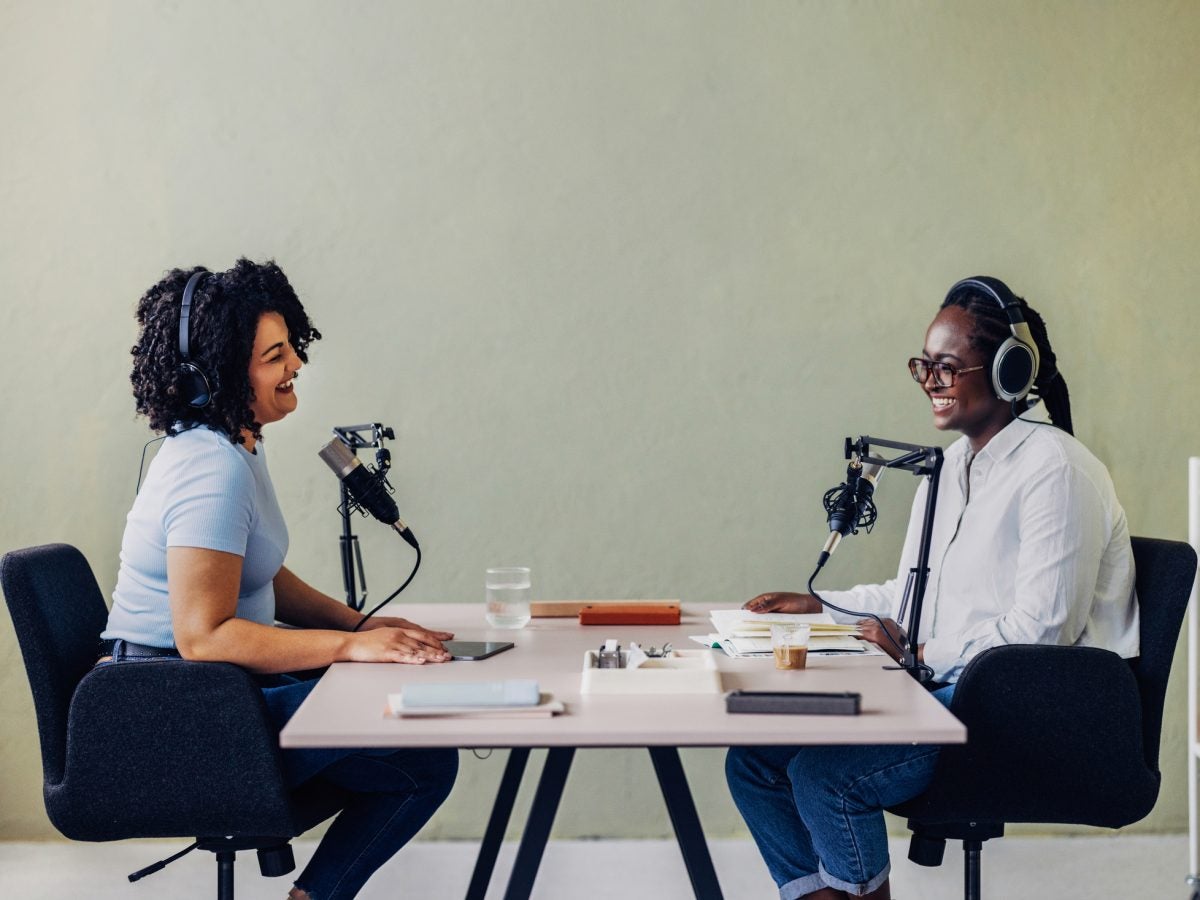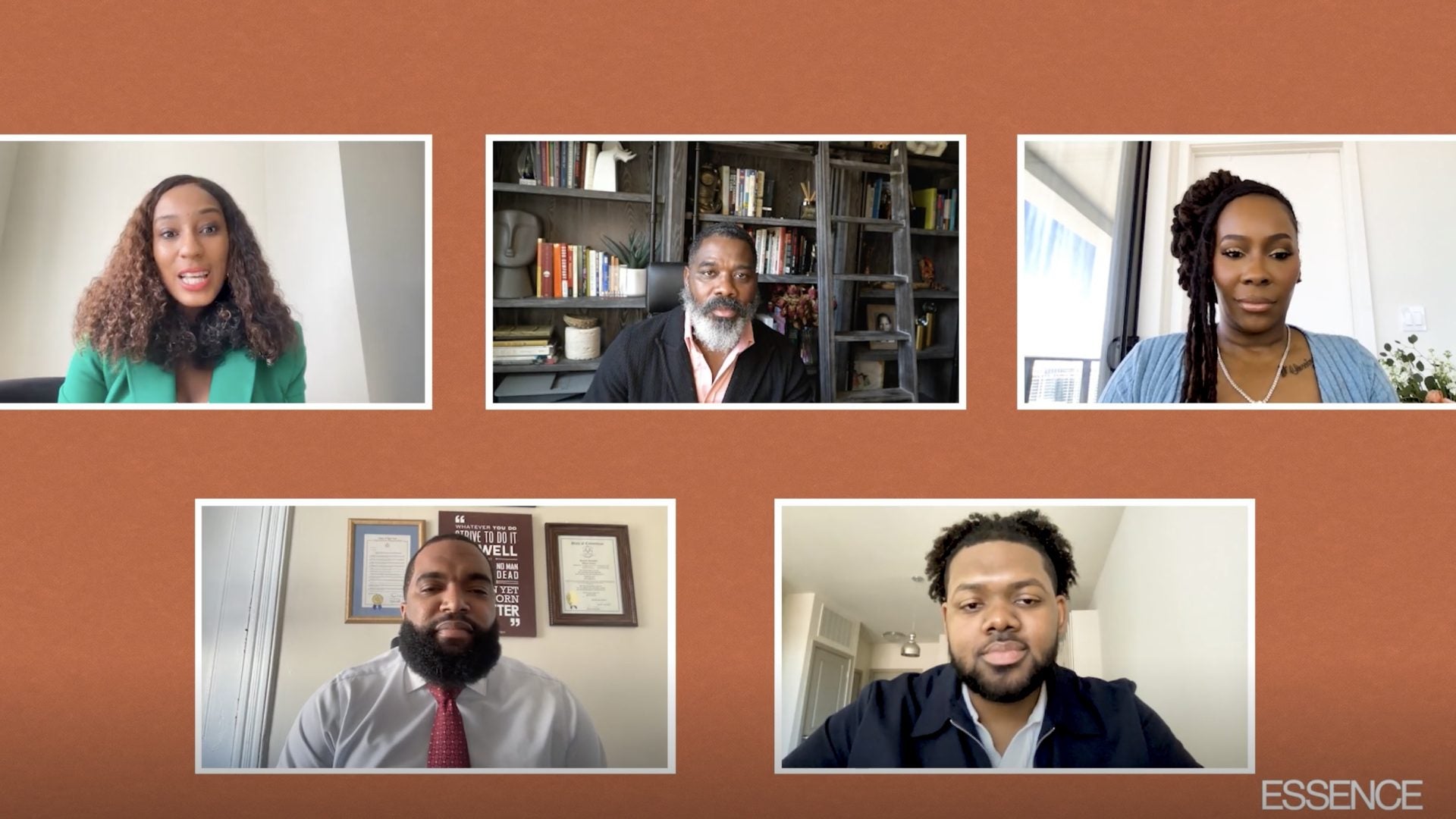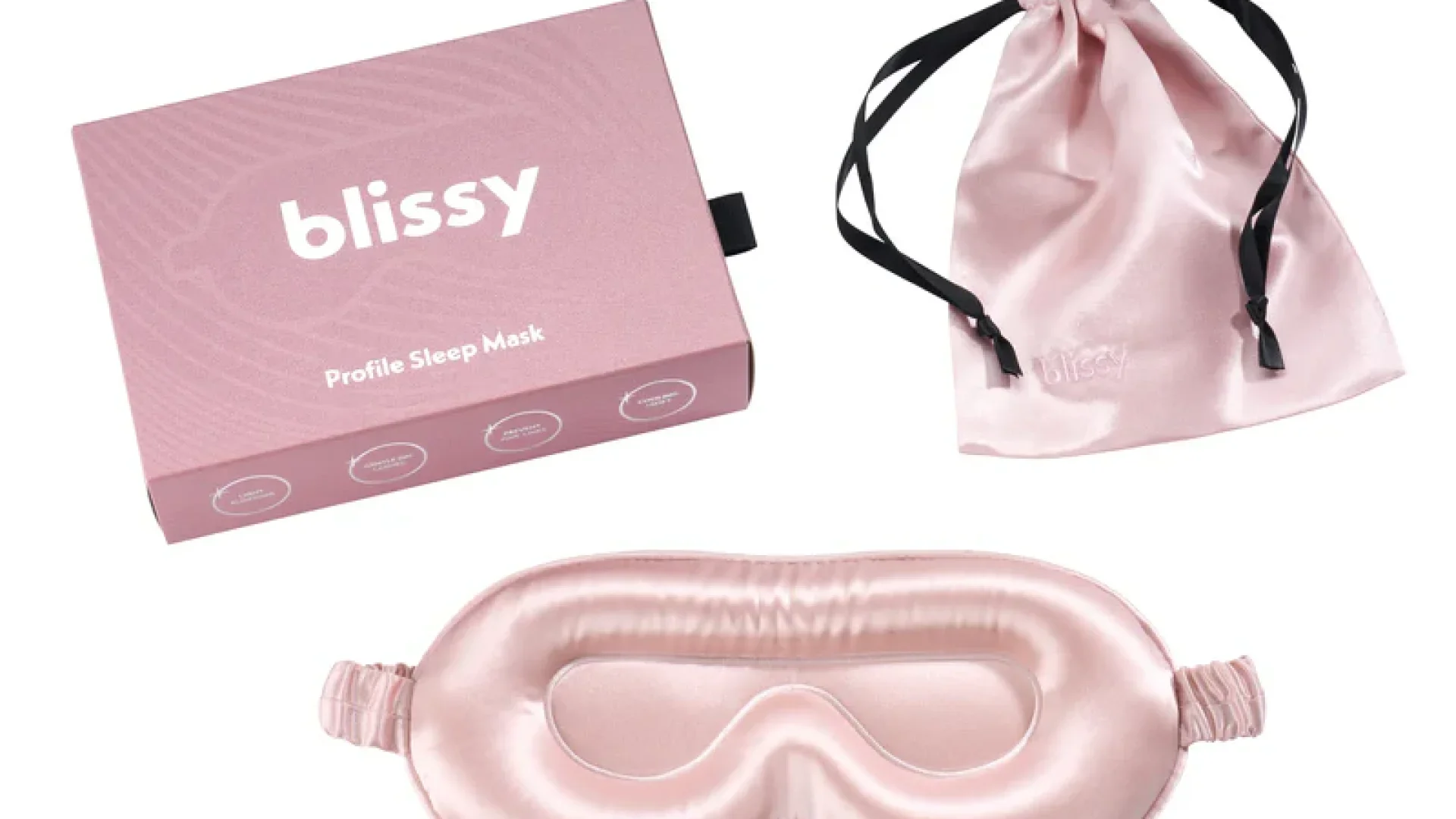
Podcasts are inescapable.
More time is spent with podcasts than TikTok every day in the U.S. in 2024 per data gathered by iHeart that was shared with ESSENCE. What’s more, 67% of the U.S. has now listened to a podcast and monthly reach is 47% and weekly reach is 34%. The platform also says that podcast listeners are replacing time with social media (70%), YouTube (50%), streaming audio (46%), and TV (28%).
Why is the medium so popular? Simply put, it’s easily accessible and has bred familiarity between hosts and listeners. Charlamagne Tha God, the magnanimous long-time co-host of nationally syndicated radio show The Breakfast Club as well as popular podcast The Brilliant Idiots.
“I definitely saw the landscape being as huge as it is now,” he tells ESSENCE. “For those wondering why the space is so popular, we have to understand that podcasting is literally just the evolution of talk radio. There’s something about humans in which we like listening to long form conversations, probably because we like having them. It’s like sitting on the phone and listening to your best friend for hours.”
That parasocial connection has translated into big bucks.
The market is currently valued at $23.56 billion and huge celebrities along with everyday people are launching podcasts daily. Charlamagne recognized the earning potential of the space and his own podcast network, Black Effect in partnership with iHeart Radio. Right now the company’s spinoff, iHeartPodcasts is the #1 podcast publisher with 167M U.S. downloads, more than the next six publishers combined. Major brands are taking notice.
“Listeners trust the hosts and podcasts they tune into, and brands investing in this space help build upon that trust,” Yetunde Faparusi, Director, Brand Marketing and Performance Strategy at Nissan. “Leaning in here allows for brands to reach listeners in a space that they are choosing to tune into and engage with via content that interests them.”
For the third year in a row the brand has sponsored iHeart and Black Effect’s Thrill Of Possibilities Summit, an event dedicated to fostering the professional talent of Black youth. Taking place in Nashville, TN, dozens of HBCU students were able to connect with media executives, popular podcast hosts and successful entrepreneurs.
“Partnering with Black Effect on this summit is the embodiment of Nissan’s commitment to increase diverse representation in science, technology, engineering, arts and math (STEAM) related careers and support of Nissan’s larger HBCU efforts,” Faparusi says.
With that, solopreneurs and small business owners are getting in on the action to help bring exposure to their brands, but in a world that has become oversaturated by an influx of content, is it worth it?
“It is,” says Ebone’ Almon, creator and host of weekly podcast The Professional Homegirl. She records, edits and leads production on the show in tandem with working a 9-5 job. She says she launched the show to create a space for young Black women to gain information about corporate America and mental health. Almon created the podcast in 2019, and has since built a personal brand that has led to speaking engagements and six-figure deals. But it hasn’t been easy.
“It took nearly five years before I was able to see any real monetary gain from it,” she tells ESSENCE. “Luckily it was something I was incredibly passionate about so the money didn’t drive me, the platform did.”
To let marketers tell it, podcasting allows businesses to position themselves as thought leaders in their respective industries and can ultimately reach new audiences. Data shows that 74% of podcast listeners tune in to learn new things.
So, how exactly can they stand out?
“You do it when you feel it,” Dollie Bishop, President of Production & Creative Development tells ESSENCE. “I do understand the idea that podcasting is oversaturated, but so what? If you feel like creating something and doing something, do it. I don’t think you should stop or hinder anyone from deciding to do something because they feel like there’s so many other people there. There’s something special about everyone’s voice.”
While inspiring, some aspiring podcasters are still understandably apprehensive about their voices getting lost, or even misunderstood in the vast space.
Nyla McPherson, a 22-year-old engineering student says she’s been interested in launching her own show about navigating STEM as a young Black woman for years, but has yet to because of concerns about the audience it could reach.
“I have a fear of rejection when it comes to doing something like that,” she tells ESSENCE. “There’s just so much negativity out there and I honestly don’t want anything I say to be taken the wrong way. I also don’t want my voice to get lost. What if no one listens?”
Despite her apprehension, McPherson acknowledges that podcasting is the great equalizer, stating that both her peers and older counterparts listen to podcasts. “There’s something for everyone.”
Podcasting has grown exponentially due to its low barrier to entry and lack of censorship, unlike radio broadcasting.
As the space continues to grow, Charlamagne says he foresees boundaries put in place similar to those that radio personalities have to adhere to.
“I do believe there will be some sort of governing body similar to the FCC that will enforce rules and regulations on podcasts and YouTube,” he explains. “You’re not going to be able to get on YouTube or on these podcasts and say whatever you want to say and not be fined if you’re willfully spreading misinformation. We all have to be responsible for our voices.”





